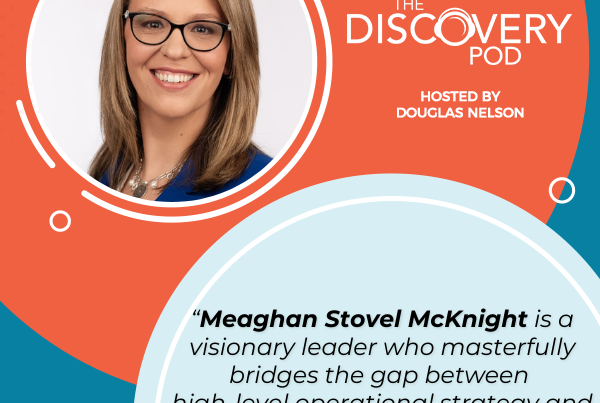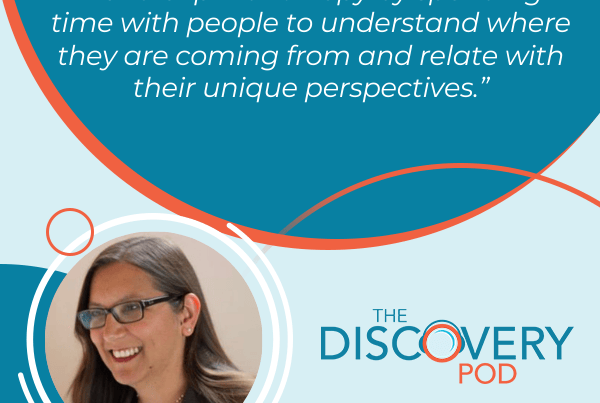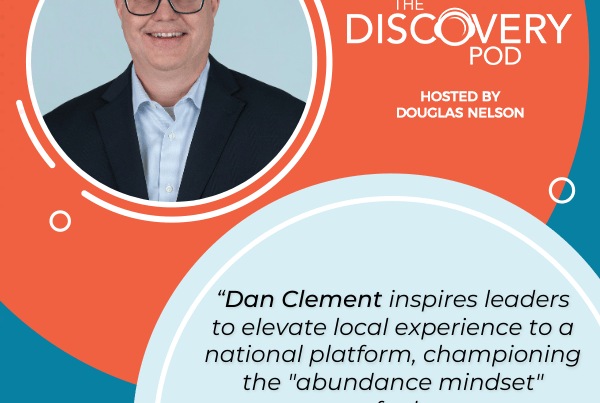As soon as women have children, they’re already at a disadvantage in their careers. This is what you call “The Motherhood Penalty,” and Maturn is on a mission to solve that. Most organizations never really even thought about maternity leaves. Most of them just expected their employees to come back and pick up from where they left off. That is not how it works. Women need time to get back into the process, especially after a long transition. Join Douglas Nelson as he talks to the Founders of Maturn, Jen Murtagh & Sonja Baikogli Foley. Learn how and why they started Maturn. Discover how companies, big and small, can improve on their maternity leave process. Find out the power of Maturn today!
—
Listen to the podcast here
The Power Of Maturn With Jen Murtagh And Sonja Baikogli Foley
We have an absolutely sizzling episode. Research shows that as soon as women have children, they are added to a disadvantage in their careers. Some people call it the motherhood penalty. You will hear more about that in this episode. There are two people who are doing something important about it. Jen Murtagh and Sonja Baikogli Cofounders of Maturn. We are thrilled to have them on the show talking about an issue that matters a lot in our sector and all the sectors in between and beyond. Read our conversation, get a sense of the work they are doing, and how you can implement the advice that they are sharing in your own organizations. Thank you for reading.
—
Jen and Sonja, welcome to the show. It’s great to have you here.
Thank you so much for having us.
I have been looking forward to this conversation because Maturn and even the conversation that you are starting for women in the social profit sector is important, and leaders have a lot to learn from the messages that you share. I want to start first with what’s your first memory of community service as you were growing up both to you, Sonja and Jen.
I was introduced to community service pretty early on. I remember having a deep sense of social justice even as a child. I was born in ‘78. Some of my earliest memories on television were a lot of the World Vision commercials around the Ethiopian famine. I remember having this deep sense of, “How could this be happening in other parts of the world where children are starving and dying.” We have it pretty good in Canada.
That shaped me a lot in my career and my values. I got involved as early as I could. I couldn’t get hired yet, but I started volunteering when I was about 11 or 12 years old at summer camps, and then that grew from there when I moved into bigger community service roles in my late teens. In my early twenties, I started volunteering with the Canadian Cancer Society. I coordinated there for the life program and took on a Litany volunteer service after that. It gave me a big sense of impact and connection to the community. I got a lot of amazing mentorships from social profit leaders during that time as well.
Jen, how early on in that journey did you know that you were going to make working and a career out of that sector?
I had some interesting experiences working in social profit and volunteering in the not-for-profit space while I was working in corporate. It turned me off for the first ten years, and it was maybe the experience that I had. I was like, “I feel this industry isn’t as fast-paced as I wanted it to be.” I told myself this narrative about what nonprofit meant and that I would volunteer in it before I took a leadership role in it.
That changed on my first maternity leave because maternity leave gives you the first opportunity to think in a deeper way about your life and the impact of moving into motherhood. I’m sure all parents are a big identity shift with, “What am I doing? What’s my impact? How do I want to change that?” It was after that I started working in a nonprofit. I came back into a leadership position with the CKW Kids fund after my first child.
We will come back to that process and that journey for you. I’m sure, a couple of times in our conversation. Sonja, what were your first memories of community service?
I can’t pinpoint my first memory but what I do know is that I grew up with values around the importance of giving back and helping others. My parents arrived in Sweden as refugees. They escaped the Iran-Iraq War in the ’80s, and I was born into a refugee camp. Later, immigrated to Canada. Through those experiences, there has always been a lot of survivor’s guilt, knowing that I have a lot of family in other parts of the world that don’t have remotely the same type of opportunities that I have.
I felt it early on that if I was going to be here on Earth, then I better make a difference and whatever I devote my time and energy towards better have some an impact. That has always been a theme throughout my career. Getting to start Maturn has been an absolute dream come true because we get to see the impact we are having on mothers and organizations and I do believe that. It’s a gap that is not being met. It’s an absolute privilege to be able to be there in this community to support mothers and leaders.
It has been impressive watching how Maturn started, and it seems to be driving conversation. How much of that are the right time and the right place? How much of that is shining a light on this for the first time for a lot of organizations?
It’s a little bit of both. What we hear over and over again from organizations is, “I wish this were around when I went on maternity leave or how come this doesn’t exist yet?” We know that it took over a year of extensive research with mothers’ one-on-one focus group surveys. We learned a lot in our research and development phase, and it was important to do that work so that we could understand the challenges.
A big portion of Maturn is inspired and informed by our experiences but we wanted to make sure that it is something that is relevant to all mothers. Absolutely the right time. The pandemic demonstrated the significant inequities that mothers face, and we know there’s still a motherhood penalty even in a progressive country like Canada.
Globally, we are still hundreds of years away from gender equity, and a huge part of that is the motherhood penalty. Until we start addressing and talking about what that penalty does to mothers’ careers, we won’t be able to reach equality. We must build and provide equitable tools such as these supports and tools that we provide through Maturn to reach equality.
We're still hundreds of years away from gender equity. And a huge part of that is because of the motherhood penalty. Share on XWe cannot expect mothers to be able to figure this out on their own. It has been too long for us to leave it up to mothers to figure it out on their own. We talk about this all the time, the economy relies on mothers, yet they are totally undervalued. If we want our population or organizations to continue to grow, we have to support mothers, and this is one way to do that.
The economy relies on mothers, yet they're totally undervalued. Share on XWe probably don’t need to explain what the motherhood penalty is. You said that it started both from the two of your individual experience with maternity leave. You take year focus groups. You’ve got an advisory board for Maturn. What changed over the course of that year? What did you learn in those conversations, and where did it bring you in terms of the offering that you have for mothers and organizations?
We started with the program. We started with the desire to support mothers that were going through that transition from the time they knew they were expecting, whether they were a birthing or a non-birthing mother, to maternity leave, on leave, and back again. We knew that was important. What grew from that was the need to provide support for organizations and people leaders because a lot of people leaders don’t know how to navigate through this.
A lot of the feedback we heard in our research and development phase was that, “One experience I had with my supervisor where I told them I was going on maternity leave was awful. I felt marginalized, and my projects got taken away. When I came back, they sent me to Japan the first week back,” and all of these range of experiences that we heard, and a lot of it, the impacts, were this one person. This direct supervisor impacted their experience about how supported they felt by their organization.
What came from that is the development of our three-part workshop series, which we provide to organizations that help raise consciousness around the most pervasive form of gender bias, which is maternal bias, and how that shows up in the workplace. The lived experiences of women and specifically mothers at work, and how to better support mothers through those many transitions because most people are not getting that in management training.
They don’t know. Someone comes to you on your team and says, “I have a miscarriage, and I can’t come to work for two weeks.” How do you navigate through that conversation with an individual or the range of things that mothers will go through that are different lived experiences? That evolves. Our offerings around Maturn are continuing to evolve as we hear more and more from organizations and individuals.
From your conversations with organizations, and you put the people in those organizations, are the issues more that the organizations themselves never asked or thought about how to be better or more supportive of women? Is it that not only are they not thought about it, they are not open to doing it differently? What are you finding in those conversations?
I can take the first part of that. We have heard a range. We have spoken to a lot of organizations in 2021. Big global organizations with headquarters in Canada, smaller social profit. You name it. We have talked to them. I would think a lot of them have said, “We have good support when it comes to re-onboarding for long-term disability but we have never thought about maternity leave.”
A lot of organizations have said, “We have expected them to back up where they left off.” A lot of women are taking up to eighteen months off now, and then they might also be coming back pregnant or wanting to number two to start quickly if they are doing from succession, and that can be a huge stall in their career progression.
What we are hearing from most organizations is that we do a little bit of things like we do some financial top-ups, and those are nice to have. At the end of the day, what we have learned through our research with mothers is that it doesn’t impact how they feel about the company and how supported they feel. The financial top-ups are nice but it’s not the thing that creates confidence for them coming back into their role, especially if they have had back-to-back maternity leaves.

Maturn: Financial top-ups are nice, but they don’t really impact how a mother feels about their company. It doesn’t really create confidence for mothers to come back into their role.
Let’s say someone has taken their role who’s done well when they have been off on their leave for the last year. The range of emotional experiences that mothers face. I would say most organizations haven’t put a concerted effort into addressing this and addressing how the motherhood penalty might be showing up within their workplace.
The top-up is nice to have but it’s not the most important. What is the most important?
From our research, talking to hundreds of women, it’s the support. It’s how they feel. The top-up is great but we also live in an expensive country where the top-up is to keep a roof over your head or to pay the bills. That’s not going to support you through the many transitions that you go through that can challenge you in how you feel about your ability to return back to work and be a leader and a mother at the same time.
What we have built at Maturn is the opportunity to gain those skills, perspectives, and tools to be able to return back with more confidence and desire to want to go back and know that, “I can do this. I can do both because I have done that inner work that was required, and I know I’m not the only one.” When you are in a community with other mothers who are going through similar challenges, it helps normalize some of those difficulties, and you walk away every week thinking, “I’m so glad I’m not alone, and I’m feeling that.”
There are two pieces of advice that I want to ask. The first one I’m going to answer for you is that companies wanting to provide that level of support should work with you at Maturn. Once they make that important phone call, how do you start with an organization that’s wanting to do a better job of supporting women?
When they say yes, they want to support women through Maturn.
We haven’t thought about this. “We do long-term disability because the insurance company makes this. We have read about the show,” where we are in. Where did they start?
They would reach out to us, and we would set up a time to connect and share a bit more content and context about how the program works. We have made sure that it’s accessible to all organizations. It’s not a program that’s for large organizations. We have organizations that send one person through the program. There’s no minim threshold for how many people you have to send through the program. If there’s a fit between their goals and what we are providing, then it’s a pretty easy process to get them onboarded.
I would say on top of that too. A lot of organizations that we have shone a light on this. They have gone back to their organizations and have done some of their own research. We had one big company, a global organization that said, “We love what you are doing but we are not prepared at this point to take it on.” They came back to us about nine months later and said, “We did some of our own research. It turns out we are not doing as good of a job as we thought we were when it comes to supporting mothers through these transitions, and so we want to pilot this program. We want to run 5 to 10 women through it. Gain the feedback and see if it’s something we want to roll out on a larger scale.”

Maturn: Because of Maturn, some companies have started doing their own due diligence. They found that they weren’t doing as good a job when it comes to supporting mothers through maternity transitions.
What some organizations are doing is doing their own due diligence, “Are we doing a good enough job, and surveying women that have returned from leave or socializing the program? Would this be something that you would have an interest in?” Sometimes it’s hard to know, especially first-time mothers, if you don’t know what you are heading in for until you are already in the thick of it.
We have about 50% of experienced mothers so that they might have a 2nd, 3rd or 4th child. A lot of the women in the 50% would be first-time mothers but sometimes you don’t know what you don’t know. The woman might think, “I will be fine, and I don’t want to ask for help. I don’t need a coaching program,” and then three months into their leave, they are going back to their employers saying, “I need help. I need support. Can I join that program?” We are seeing a bit of that as well.
That’s good that they are coming and too bad that they didn’t start right at the beginning of that. Both of you have experience in the for-profit and then the social-profit world. Is there a difference in how the social profit sector approaches this issue as compared to the private sector?
In our experience thus far, we have much more for-profit organizations that we are working with. I understand. I have been in the social profit and not-for-profit sector, and I recognize that sometimes there’s not the availability of a budget for professional development and coach training programs like this.
However, we have been approached, specifically by some social profit organizations saying, “This is a must-have for us. Even though we are not going to put every single person through it, we are going to focus on senior leaders or above, or some of those women that we want to retain and grow.” I would say that things for the social profit sector, sometimes, this is a budgetary issue, and we are seeing a little bit more flexibility and opportunity through the for-profit space. That doesn’t mean that it couldn’t grow.
In general, for women who have been on leave and are coming back, how well does the social profit sector do in providing support to those women as they return to work?
It depends on the organization, to be honest with you, but from what we have seen in our experience speaking to many different organizations, we haven’t seen anything like Maturn that supports mothers in a comprehensive way from the pre, during, and post-maternity leave. In the social profit sector, it depends. When, let’s say, a YWCA attracts a lot of women staff, self-identifying women, there might be a bit more empathy around that lived experience from employees and other mothers. There might be a bit more of that feeling of support but we have not seen any formal support in place so far.
In a sector that is predominantly female, if you think that lived experience would cover some of that. I suspected they were unannounced. I know there are gaps that are still out there. Would the two of you have advice for leaders in a social-profit organization who joined the Maturn program? If they weren’t able to do that, how do they get started with making a return to work more effectively for women?
It comes down to open communication. I would encourage leaders to touch base with their team a couple of weeks out before they are due to return to work. To ask them, what would make it feel like a supportive environment for their return, whether they can accommodate those requests or not, is a conversation to be able to have. Some women may request a gradual reentry. Some women are figuring out how the childcare situation works on their return, and they might want flexible hours. It’s about opening a conversation. “How do you want to feel coming back? What’s going to help you feel more supported?”

Maturn: Companies need open communication. They need to touch base with mothers before they return from maternity leave. They need to ask, “what would make it feel like a supportive environment for their return?”
A lot of women lose that social capital when they are on leave. This can be in for-profit and social profit or organizations that are changing at a rapid pace. If you are taking a 12 to 18-month leave, chances are, a lot’s changed within your organization. We encourage women to feel like they know what they are walking back into and also for their leaders to reintroduce them.
If there is a lot of new staff like providing context about who this person is, what their role is, when their back is, really welcoming them back, and making it feel as supportive as possible. Trying to avoid travel within the first couple of weeks back as they are getting ready for that routine of going back to work. It can be an incredibly emotionally charged time. I know it certainly was for me. I felt dumb at the time. I didn’t feel like I was utilizing my brain to the full capacity in the first six weeks back to work.
I was feeling torn about dropping my daughter off, who was clinging to my arms, screaming as I gave her to the daycare lady crying my whole way to work. By holding some space for individuals who, “We understand this is going to be a hard time.” If you come to work and you are feeling upset, that’s okay. Take some space for yourself. There are a lot of different things that leaders can do. It’s leading with empathy. If you haven’t gone through it yourself as a leader, seek to understand.
I would add. Let’s try to avoid making assumptions about the fact that women want to lean out after they have children because that’s unfair and limits their ability to thrive. As Jen said, we have to approach it with open communication, curiosity, and dialogue to better understand what it is that they want and what they are feeling now could change in three months or a year. Being open and understanding, and empathetic about the ever-evolving journey of being a parent.
It matters for the environment, and it matters for each individual person. Holding space, as Jen suggested, is critically important. In my experience in the sector, the far from leading out the experience that I have seen of women coming back to work is that they are very motivated to deliver. Organizations should hire women who have young children for a reason that they get so much more work done.
They are incredibly productive.
I have never worked with people who are better at balancing priorities. Far from that view of women or mothers leaning out, I have seen exactly the opposite for most of the women that I have worked with over the years.
A lot of women put an extraordinary amount of pressure on themselves in their return. We have heard this from a lot of women that they have to reprove themselves all over again. They have to prove that, “Now that I’m a mother, I can be a great leader in working as many hours as I can,” and so they will come back with a huge guess of wanting to reprove and lean in hard.
There's a lot of pressure on mothers when they return from maternity leave because they think they have to prove themselves all over again. Share on XThat’s something to be mindful of as a leader as well because as much as you can benefit. Maybe the lack of boundaries that some women might come back, in the long run, will contribute to a feeling of burnout. Addressing that being, “As you transition back in, there’s no need for you to feel that you need to reprove yourself. We are all looking forward to working with you again.”
Trying to alleviate some of the pressure that they might already be placing on themselves because they want to look like they haven’t lost any of that ability. That’s something to be mindful of, as well as leaders and women who were transitioning back. Watch that pressure cooker you put on yourself, especially in the first three months back.
As an employer, it’s important to be mindful of the barriers that mothers face when they return back to work. If you are commuting an hour each way, you are losing two hours per day, and your baby might be going to bed at 6:30 or 7:00 PM, so you are leaving the office. It’s all these things that we need more leaders to become aware of after-work socials.
Those are barriers for mothers to be able to join. Rethink how you bring people together. Are 8:00 AM meetings on Monday and your team meetings conducive and inclusive for everyone? It’s not mothers. It’s everyone. Understanding if you see someone not showing up to an 8:00 AM meeting every Monday, maybe their daycare only opens until 8:00 AM, and they are rushing out to get to work. Being mindful and aware of the many different circumstances that mothers and all parents face.
How is the trend that we have all trend that the reality of the last couple of years of more working from home? Does that have an impact on how women are perceiving their leaves and returning from leaves?
In some ways, it’s made it easier, especially if you are navigating through sickness and when you are expecting. I remember vomiting in between board meetings like having to go off and then coming back. Like green having to present for feeling, “Am I going to be able to hold it together?” In a lot of respect, the Zoom meetings and the ability to even lie down for fifteen minutes on the floor if you needed to can be helpful when you are navigating through that.
Too, even in the return to work, if you are working from home, that can make it a little lighter from a transition back. However, research has shown that women are working more than ever as they are working from home because they are doing that much more in the household as well because they are not as much in the office as they were at home.

Maturn: Research shows that women are working more than ever when they work from home because they’re just doing that much more in the household as well.
The invisible labor has increased significantly. That’s something to be mindful of in terms of how much you continue to take on. Something we discuss extensively in Maturn is how do you build an equitable partnership plan so that it doesn’t feel one-sided. A lot of women, when they are on leave, tend to take on the bulk of the childcare and domestic responsibilities. They are at home more but then there’s never a clear conversation with partners upon the return to work about how that is going to need to change now.
Now, I’m going back full-time, and so I won’t be as available, how are we going to divide? Most people do not have that conversation within their partnership, and that leads to burnout, resentment, and challenges within the relationship and work. We spend a lot of time in Maturn like a whole module talking about, “How do you build that equity while you are on leave so that you can come back and grow your career,” because it’s a huge part of women’s progressing.
In my house, we had kids that were nineteen months apart. We didn’t have that conversation when my wife went back to work but we had it very soon after about restoring more of a balance there. You’ve gone through this. You’ve had these conversations with hundreds of women. You’ve talked to many organizations. Have you reflected at all on what a program like this in Maturn would have meant for you if it had been available when you had your first maternity leave?
I have expressed what a challenge maternity leave has been for me. Sometimes we are called into areas in our life that we found particularly challenging, struggled in or even found painful. I expected maternity leave to be sunshine, rainbows, coffee dates with my girlfriends, and walks. It was isolating and very difficult.
Maternity leave isn't all sunshine and rainbows. It's really isolating and very difficult. Share on XI returned back to work like an absolute shell of a human, of who I was before I left. I didn’t have a lot of coping mechanisms. I didn’t have a lot of support. Having the opportunity to have participated in a program like Maturn would have been an absolute game changer for me because it would have normalized my experience, which I felt a lot of deep shame and guilt with.
I tried to go out into the community and to the events, and I met a lot of moms that didn’t want to go back to work. They weren’t career-driven. They thought maternity leave was the best thing ever, and how would you ever want to go back to work? I then started thinking, “I’m an awful mother, and I want to return to work. Why did I even have kids? Maybe this wasn’t for me.”
I would have benefited from women who also wanted to grow their careers and their families and found both of those parts fulfilling. It would have absolutely changed my confidence and how I felt about my own experience, and that would have benefited my employer because my mental health would have been in a much better state when I came back to work. How about you, Sonja?
Launching Maturn has been a healing process for me because I struggled through my mat leaves and felt alone in my thoughts. All the things that we get to talk about with our community are things that I wish I had a community to talk with when it was all in my head, and I was talking myself out of the many different thoughts I was having. It has been a beautiful and powerful journey so far. We are only in year one. We built something that we wish we would have had as well that was also informed by the research that we did but it was built by mothers for mothers.
You mentioned your early days but you have shifted the conversation and are important ways. I have a lot of confidence that you are going to continue to shift that conversation for organizations and women for years to come. What would you say is your proudest moment to date you thought, “This was worth it to jump in with both feet and make this happen?”
I would say, for me, anything that it feels ultimately the most fulfilling is the impact. Hearing the testimonials from the women that are taking the program about how much it’s helping them navigate through this time. That has been the most fulfilling and pivotal thing that each week, on our weekly calls, we show up regardless of how many women are there and what the state of they are when they show up. That’s the biggest impact. Sonja and I are both very impact-driven individuals.
I would echo that. It’s the testimonials that demonstrate the impact that Maturn is having. That warms my heart. Whenever we receive them, it’s like, “This is it. This is why we are doing this.”
Ideally, Sonja and I want more women to stay in organizations, be leaders within organizations, and know that they have the ability to grow their families and their careers and the ability to do that well. We have a mission to build up the confidence of women on leave so that they return to work and stay and continue to lead because we need more and more women leaders in organizations and leading across the country. The end game, from a bigger vision perspective, fulfills that.
There are some beautiful moments on our weekly live calls where you can feel a mini transformation for someone who’s part of the call. They might share something, and we might coach them through a challenge they are facing. You can see that light bulb in that little a-ha moment, and that is also a proud moment for me. The testimonials of the impact are all amazing but what we see along the way and through the journey is also equally beautiful.
As we come to the end of our conversation, I want to ask my favorite final question of our guests of the show, what are you looking forward to?
For me, you alluded to it. It is shifting the needle on the conversation with organizations around why this is imperative to their growth and the attraction, retention, and development of female talent within their organization, and I want to normalize these conversations. It seems like a no-brainer for organizations.
We should be investing in mothers. That’s an incredible return on investment that we don’t even need to have a case for support anymore, that they get it and understand that I want to do all they can to support this. When we start seeing hundreds of organizations working with us and this conversation being elevated in media and HR forums across the country, honestly, we could go on and on about everything that we have in store for this. It was slow growth.
You’ve come a long way, and it sounds like you’ve got big ambitions to go a lot farther. I want to thank you both for coming to the show. If people want to learn more, where can they find out more about Maturn?
They can go to our website, Maturn.com. We are also on all social media channels under @Maturn or @MaturnCanada.
Sonja and Jen, thank you so much for being on the Discovery Pod.
Thank you, Doug.
Important Links
- Maturn
- @Maturn – Facebook
- @MaturnCanada – Instagram
About Jen Murtagh
 As an ICF accredited leadership coach, Jen supports women to live and lead bravely through her 1:1 coaching, workshops, speaking and signature Brave Leadership for Women program. In 2021, Jen co-founded Maturn – Canada’s first maternity leave program and is on a mission to turn the motherhood penalty into the motherhood opportunity. Jen is a Business in Vancouver ‘Forty Under 40’ Award Winner and Greater Vancouver Board of Trade ‘Women of Promise’. As a community champion, she has volunteered thousands of hours for countless charities and in 2017 fulfilled a lifelong dream by travelling to Africa to lead mentoring + goal setting workshops with non-profit One Girl Can.
As an ICF accredited leadership coach, Jen supports women to live and lead bravely through her 1:1 coaching, workshops, speaking and signature Brave Leadership for Women program. In 2021, Jen co-founded Maturn – Canada’s first maternity leave program and is on a mission to turn the motherhood penalty into the motherhood opportunity. Jen is a Business in Vancouver ‘Forty Under 40’ Award Winner and Greater Vancouver Board of Trade ‘Women of Promise’. As a community champion, she has volunteered thousands of hours for countless charities and in 2017 fulfilled a lifelong dream by travelling to Africa to lead mentoring + goal setting workshops with non-profit One Girl Can.
About Sonja Baikogli Foley
 Sonja holds 15+ years of diverse experience in non-profit, public and private organizations and has always been drawn towards impact-driven work that genuinely makes a difference in the lives of others. Born to Iranian refugee-status parents in Sweden, she experienced her life from the eyes of displaced parents. These early experiences and hardships shaped Sonja’s foundation and made her the person she is today.
Sonja holds 15+ years of diverse experience in non-profit, public and private organizations and has always been drawn towards impact-driven work that genuinely makes a difference in the lives of others. Born to Iranian refugee-status parents in Sweden, she experienced her life from the eyes of displaced parents. These early experiences and hardships shaped Sonja’s foundation and made her the person she is today.
Educated in Sweden, Canada and Spain, Sonja began her career in media working in radio and continued to create change through her career — from participating in the United Nations, to serving as a board of director on the YWCA Canada Board for five years, to being appointed to the West Vancouver Police Board by the Province of BC in 2020, and most recently led the Intergovernmental Relations & Strategic Partnerships team at the City of Vancouver.
Sonja co-founded Maturn out of a desire to support women and turn maternity leave into an intentional year. In addition to Maturn, Sonja is a DEI/ARE consultant working with impact driven organizations to address challenges and remove barriers.




